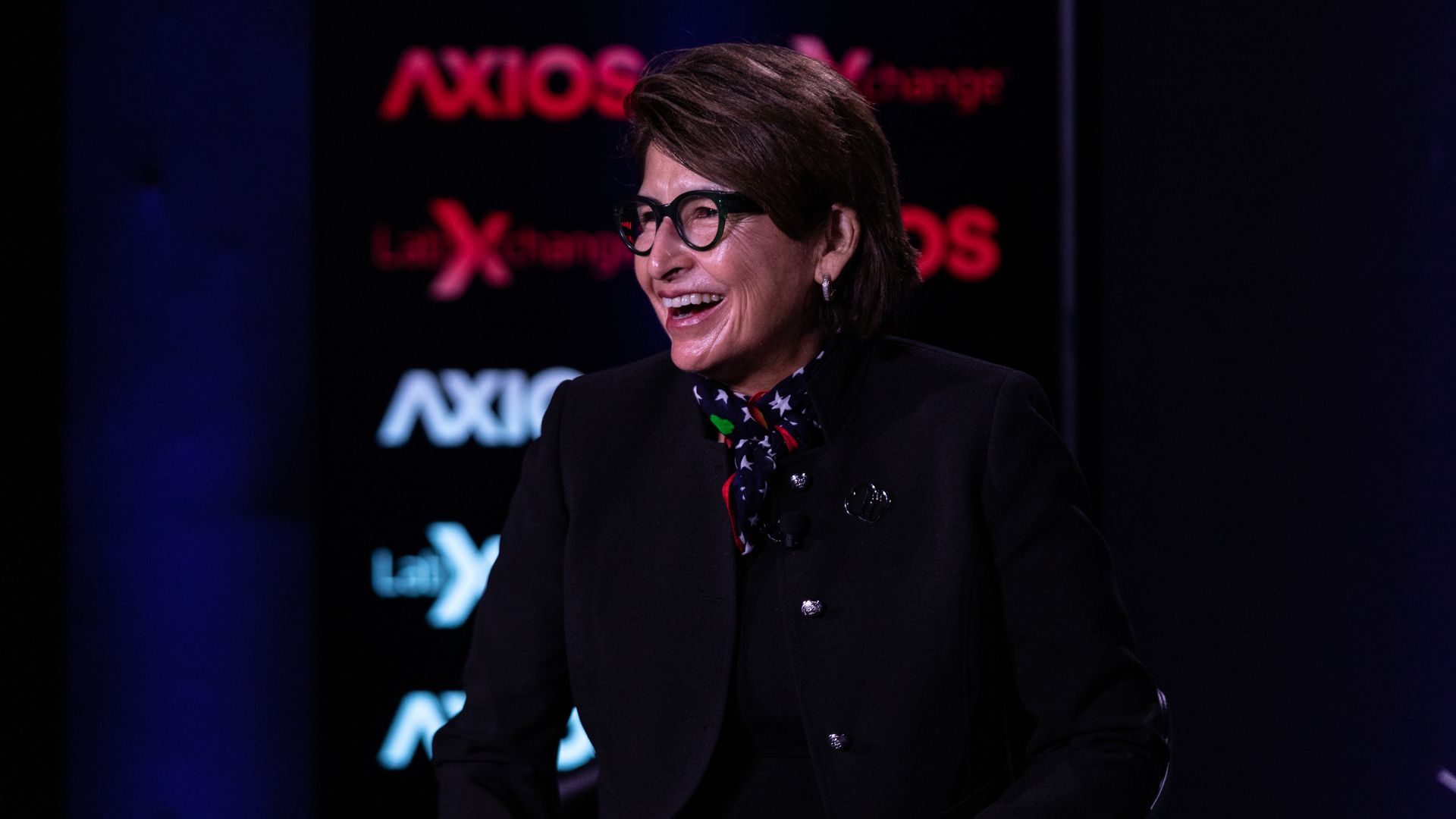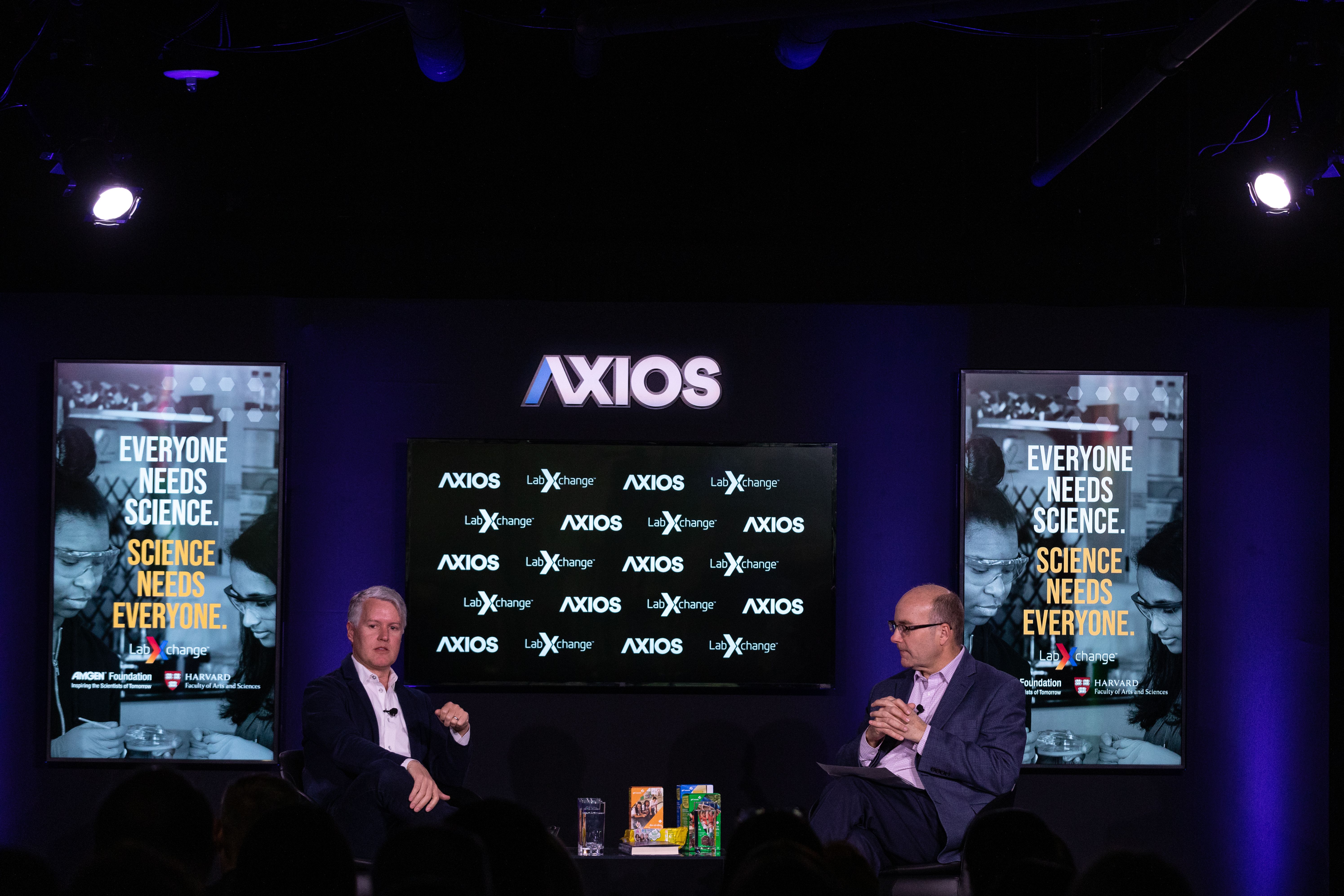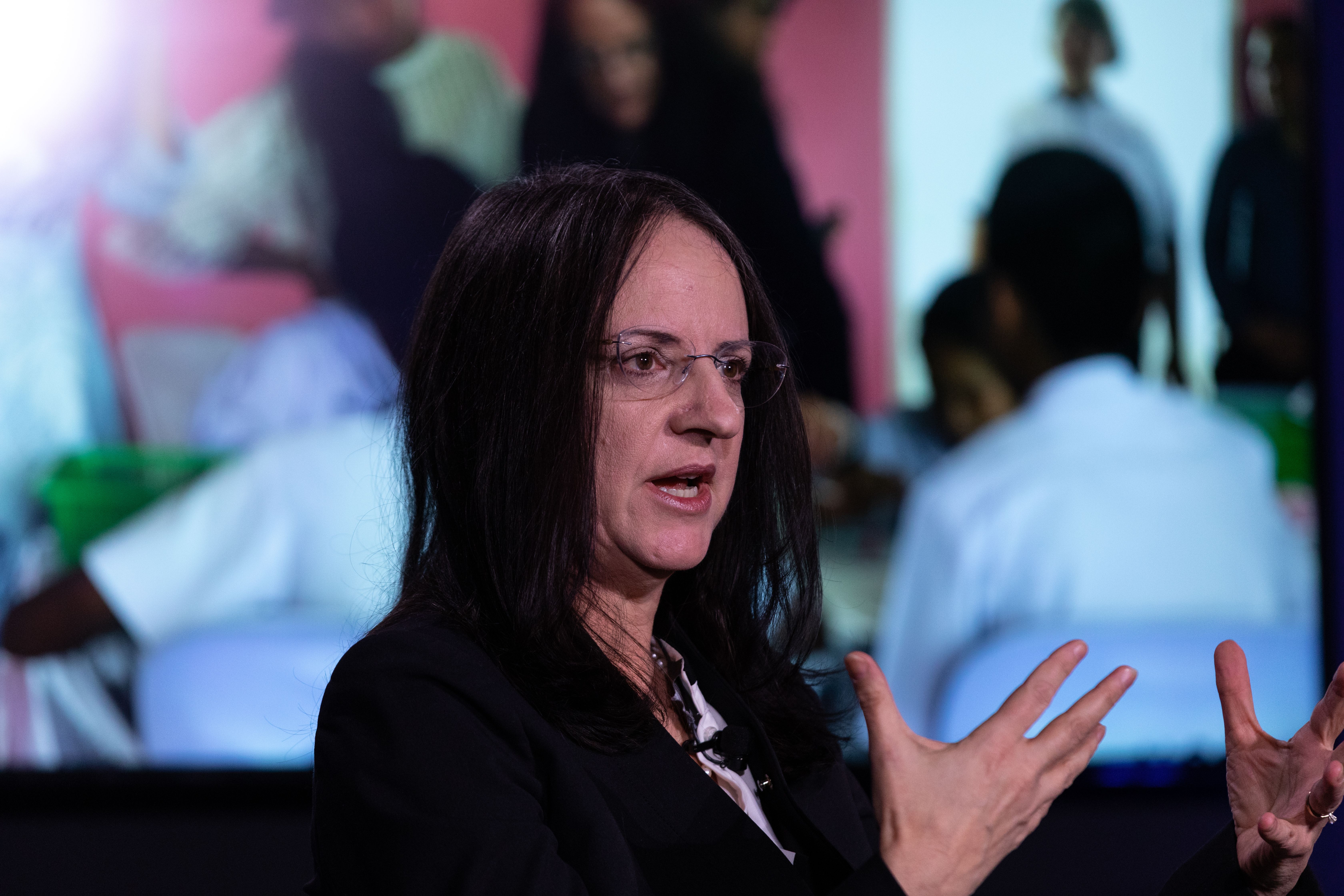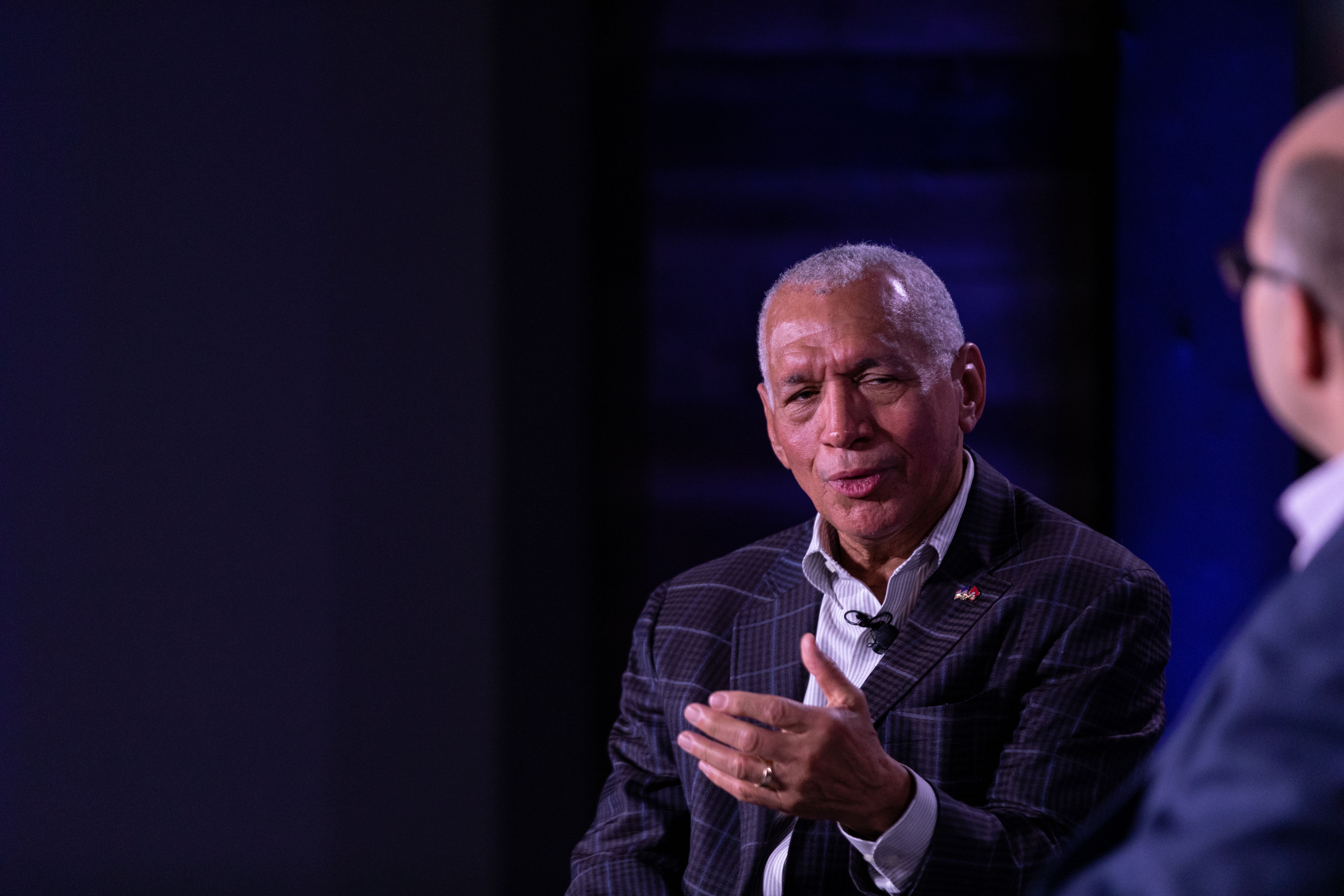The Future of Science Education
Add Axios as your preferred source to
see more of our stories on Google.

CEO of Girl Scouts of the USA, Sylvia Acevedo on the Axios stage. Photo: Cheriss May for Axios
On Tuesday morning, Axios Co-founder Mike Allen hosted a series of one-on-one conversations to discuss the future of science education and digital learning.
Tom Davidson, Founder and CEO, EVERFI

Founder and CEO of EVERFI, Tom Davidson, discussed how digital learning platforms can be used to bring high-quality curriculum to underserved areas and address unique learning needs.
- On how digital tools can be used to teach valuable interpersonal skills for students: "Compassion is one of those things that actually you can teach using technology...[students can] get that muscle memory online and begin to apply that to the way that they approach those things in real life."
- On inequality in education: "It’s taken this country 400 years to disadvantage kids from learning...This has been a compounding problem...communities that can afford [high-quality education] will get it."
Dr. Carol O'Donnell, Director, Smithsonian Science Education Center

Dr. Carol O'Donnell, the Director of the Smithsonian Science Education Center, highlighted the importance of hands-on learning in the sciences and having a diverse teaching workforce to make STEM accessible for young students of color.
- On what Greta Thunberg has taught educators: "The voice of youth really matters…Young people are concerned but also very active. [They care] about the application of science in the real world."
- On workforce development: "When we think about the future of work, so many of the professions will require science, technology, engineering and math skills not just in isolation, but truly integrated."
- On how to make lasting change in the STEM sector: "If you want to diversify the STEM workforce, you have to also diversify the teaching workforce...too many of our students, especially students of color who don't see teachers who look like them don't believe that STEM is accessible to them."
Sylvia Acevedo, CEO, Girl Scouts of the USA
CEO of Girl Scouts of the USA, Sylvia Acevedo, focused on girls being able to protect and control their digital lives, as well as the importance of a civic education.
- On Girl Scouts' new curriculum around cybersecurity, engineering, and technology: "The world around us has changed and girls need to be not just users of technology because so many of them have a mobile device in their hand, but they have to be able to be designers, creators, inventors."
- On the lasting impact of civic engagement: "More than half of all female elected officials in America are Girl Scouts. 60% of the women in Congress. 75% percent of the senators. All three female secretaries of state. Girl Scouts. We see how a lifetime of leadership in civics is playing out in their lives."
- On modernizing STEM education: "You cannot correct the STEM gap using the same curriculum that created the gap."
Major General Charles F. Bolden, Jr., Former Administrator, NASA

Major General Charles F. Bolden, Jr., the former Administrator of NASA, highlighted how storytelling is essential in communicating the importance of science to the wider public, as well as the significance of women and students of color seeing themselves represented across STEM.
- On making social progress at NASA: "I don't think firsts are very important if there aren't seconds and thirds and fourths. So until there is another person of color to be the NASA administrator, or more importantly, until there is a woman NASA administrator, we really haven't done what we say, what we claim to be about."
- On the importance of taking action on climate change: "People who want to go to Mars as an out can forget it. We are on the one planet that humanity knows can sustain life and we need to take care of it. You do not want to live your life in a spacesuit. So if you don't want to do that, preserve this planet, clean it up."
Thank you Amgen Foundation for sponsoring this event.
